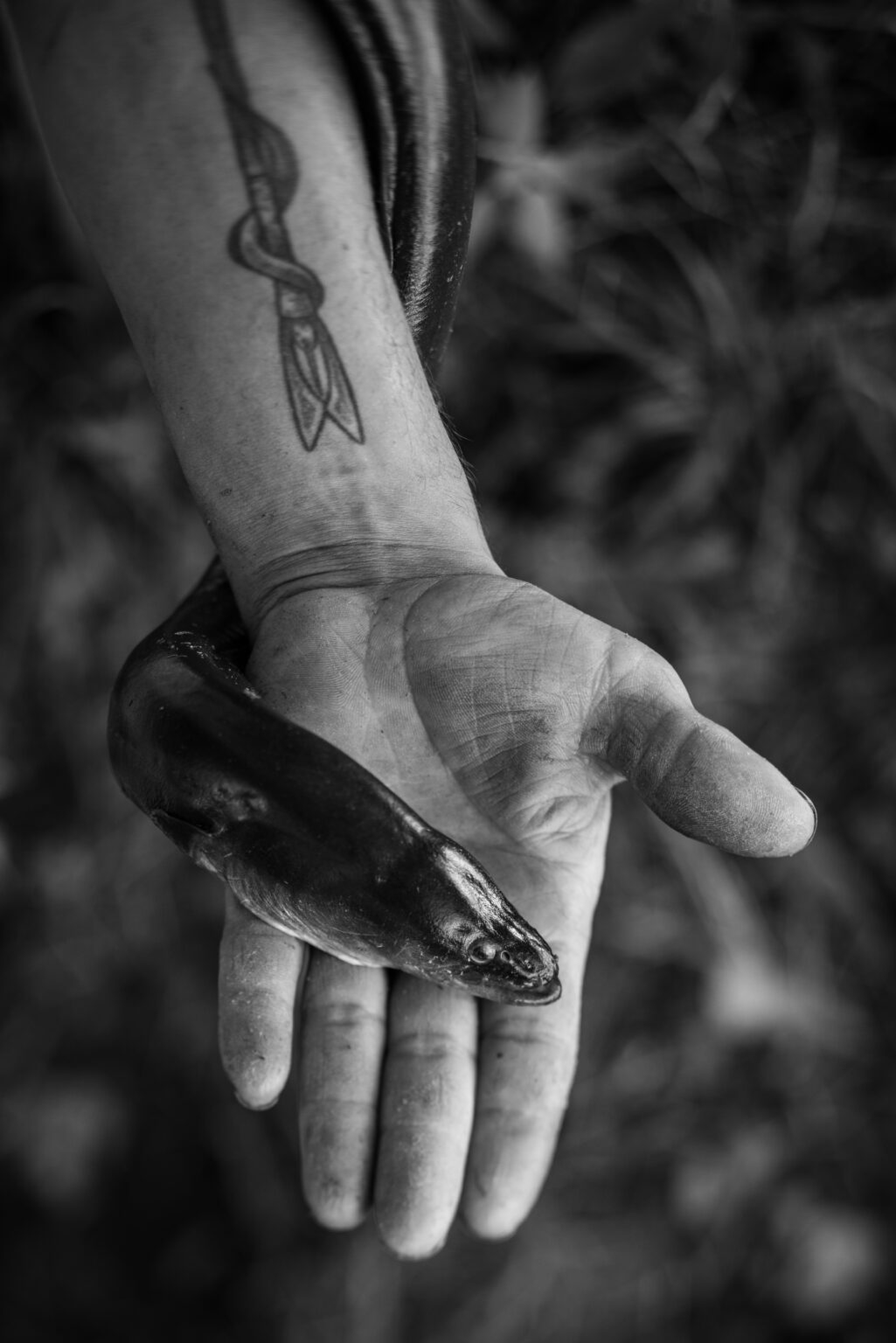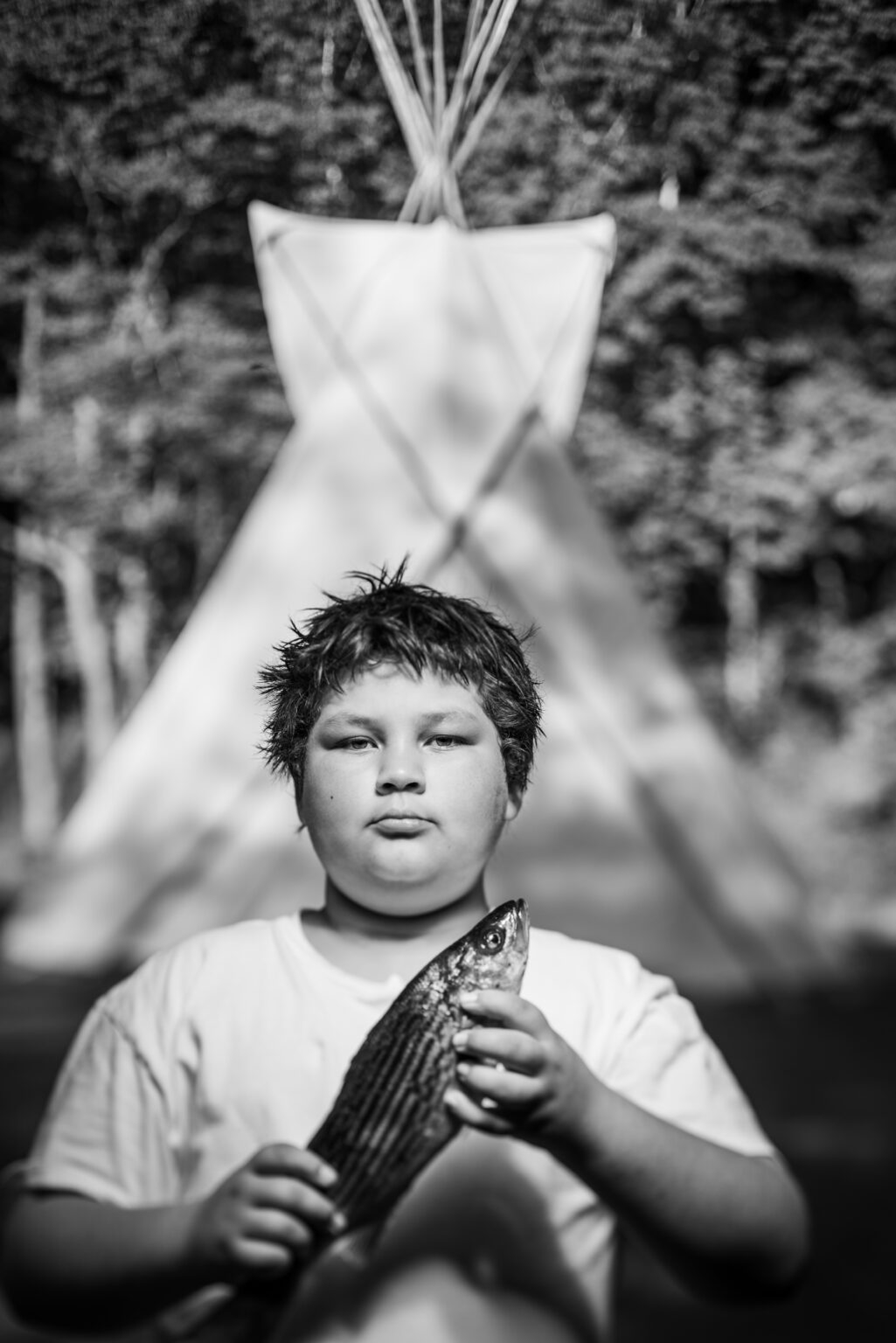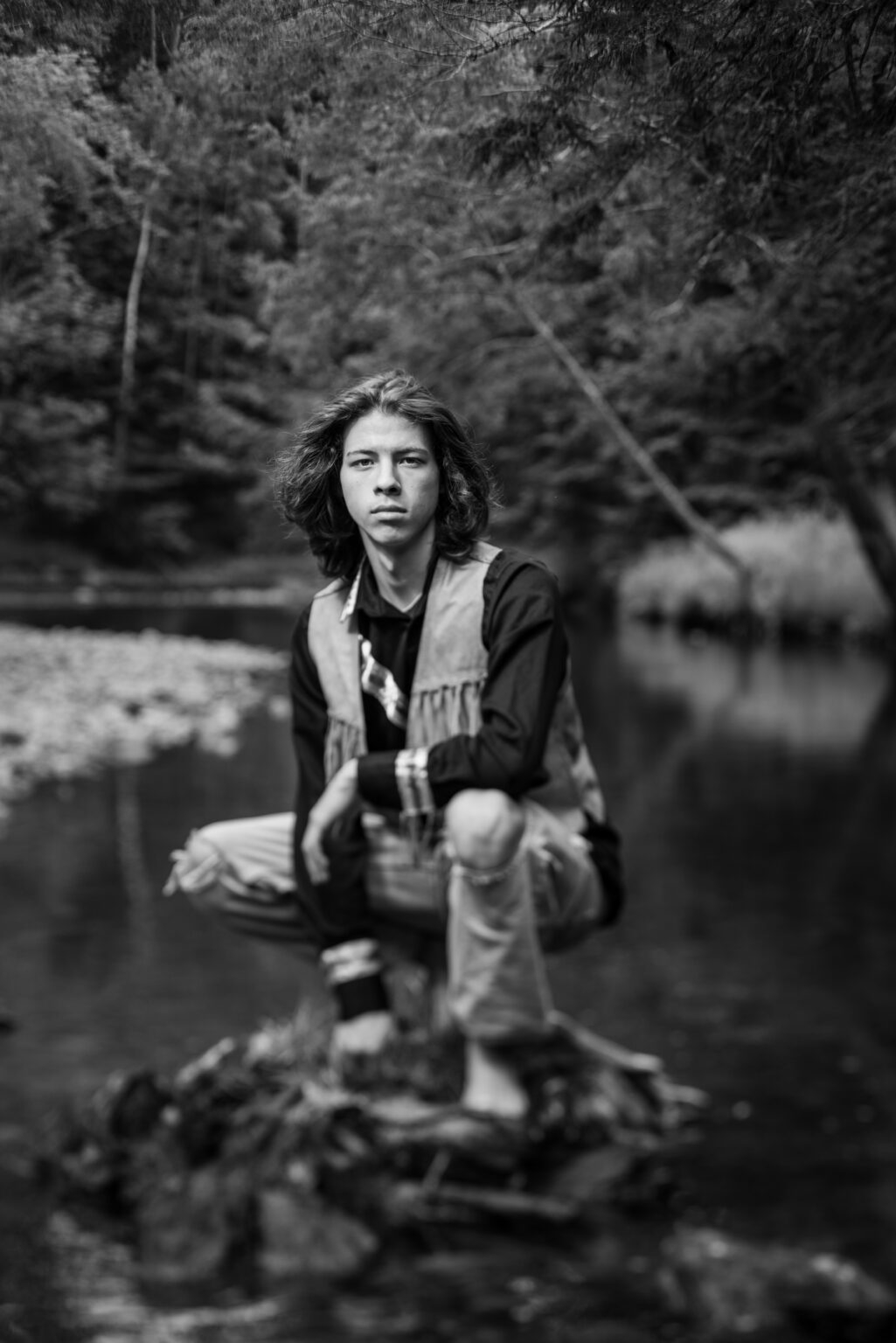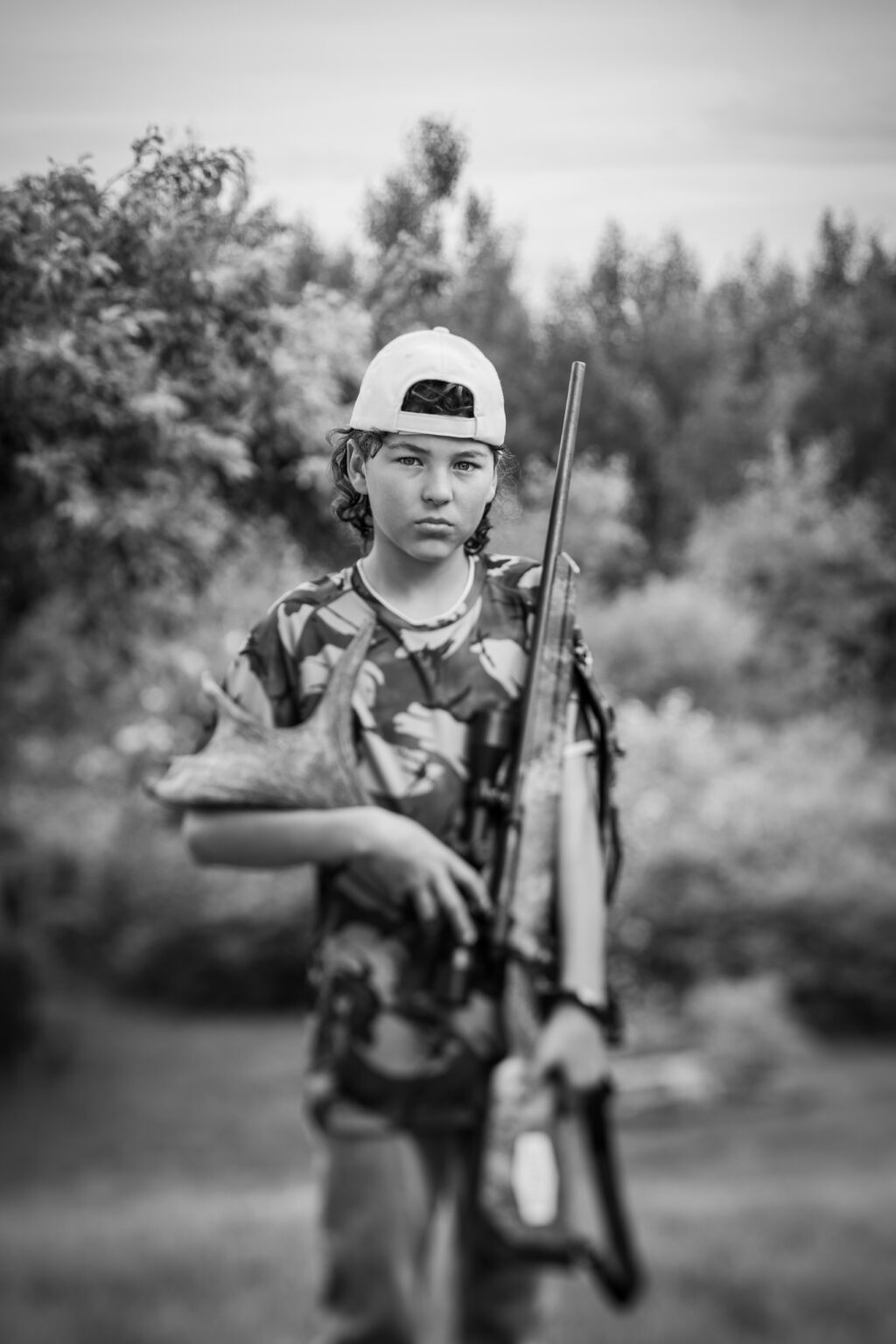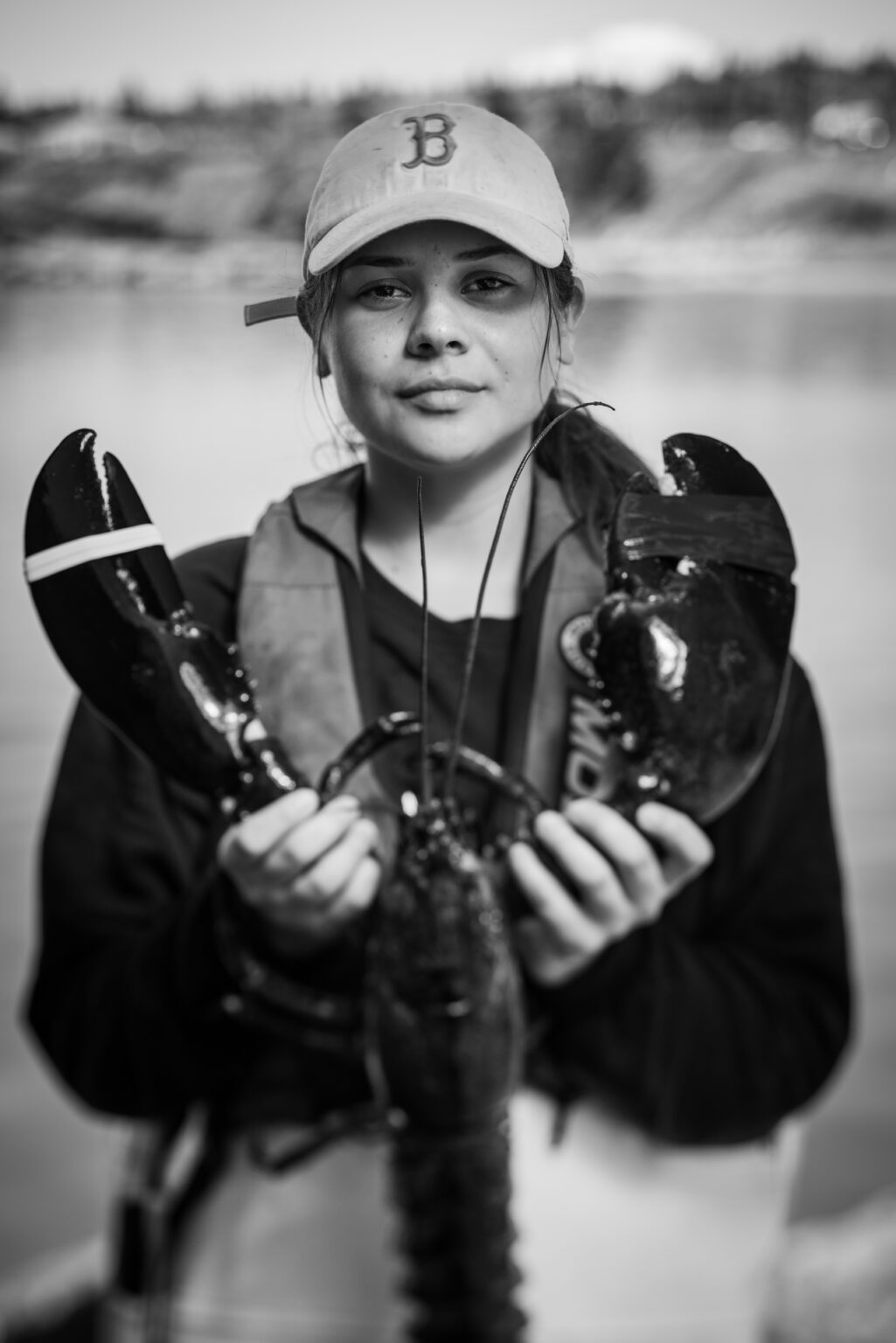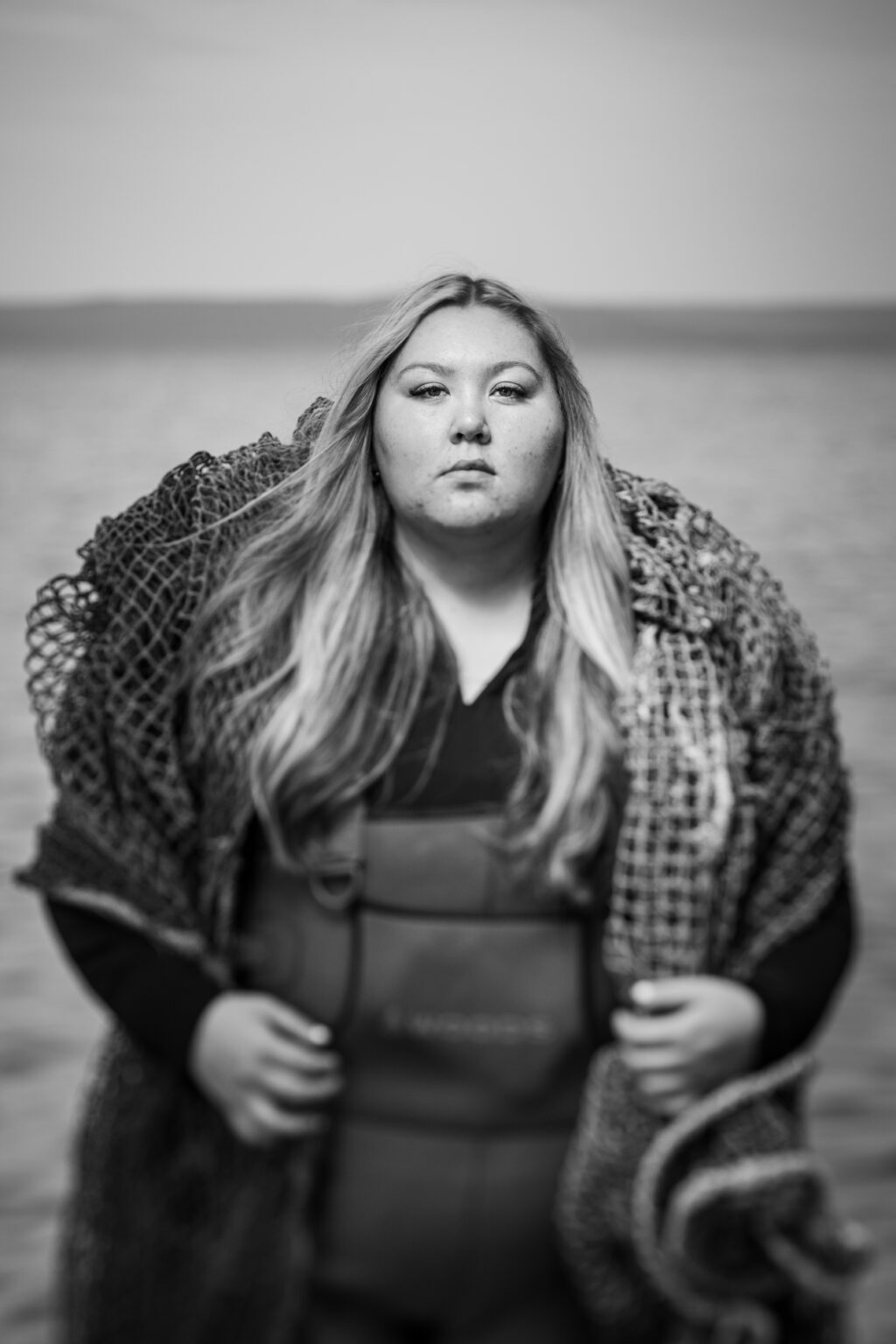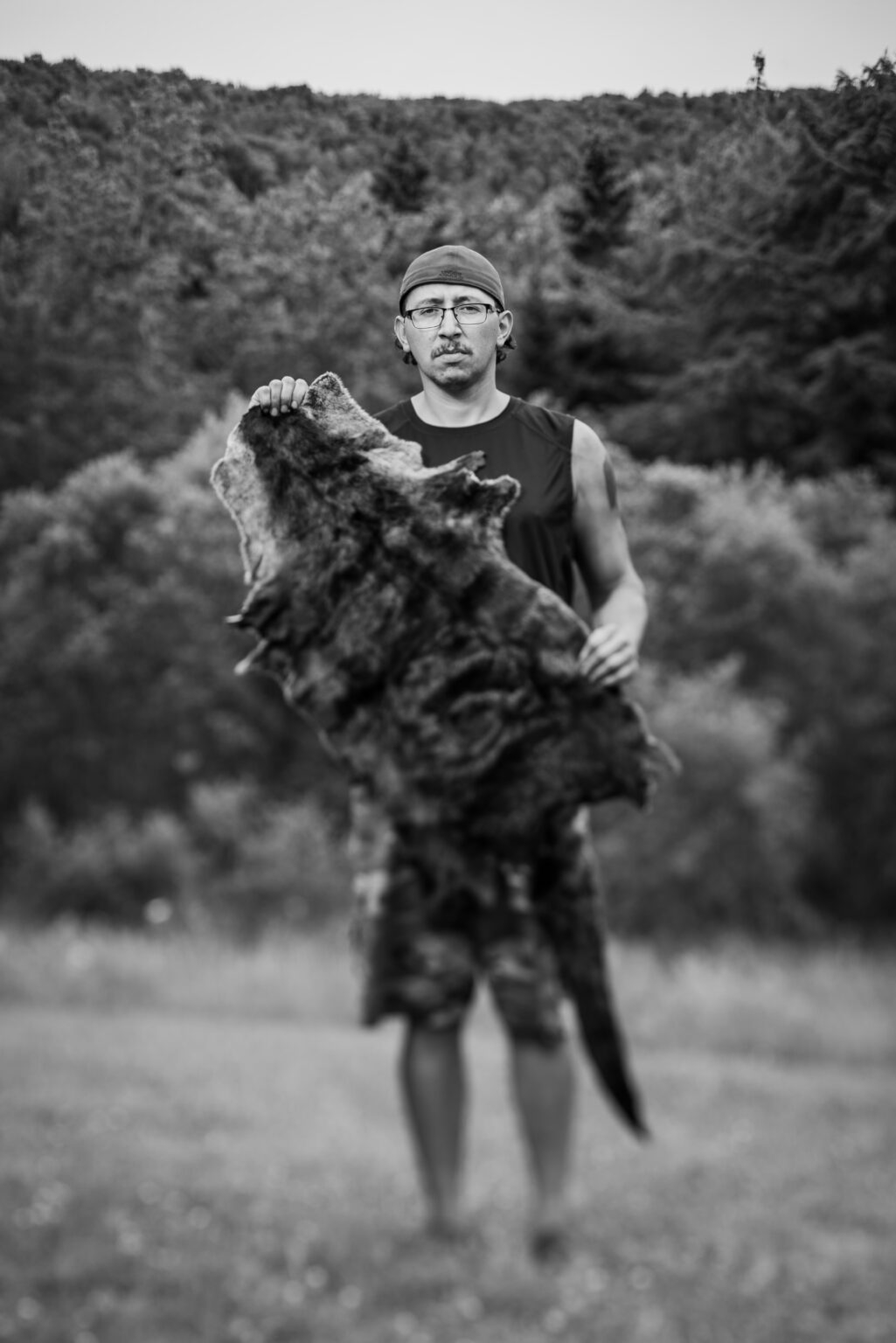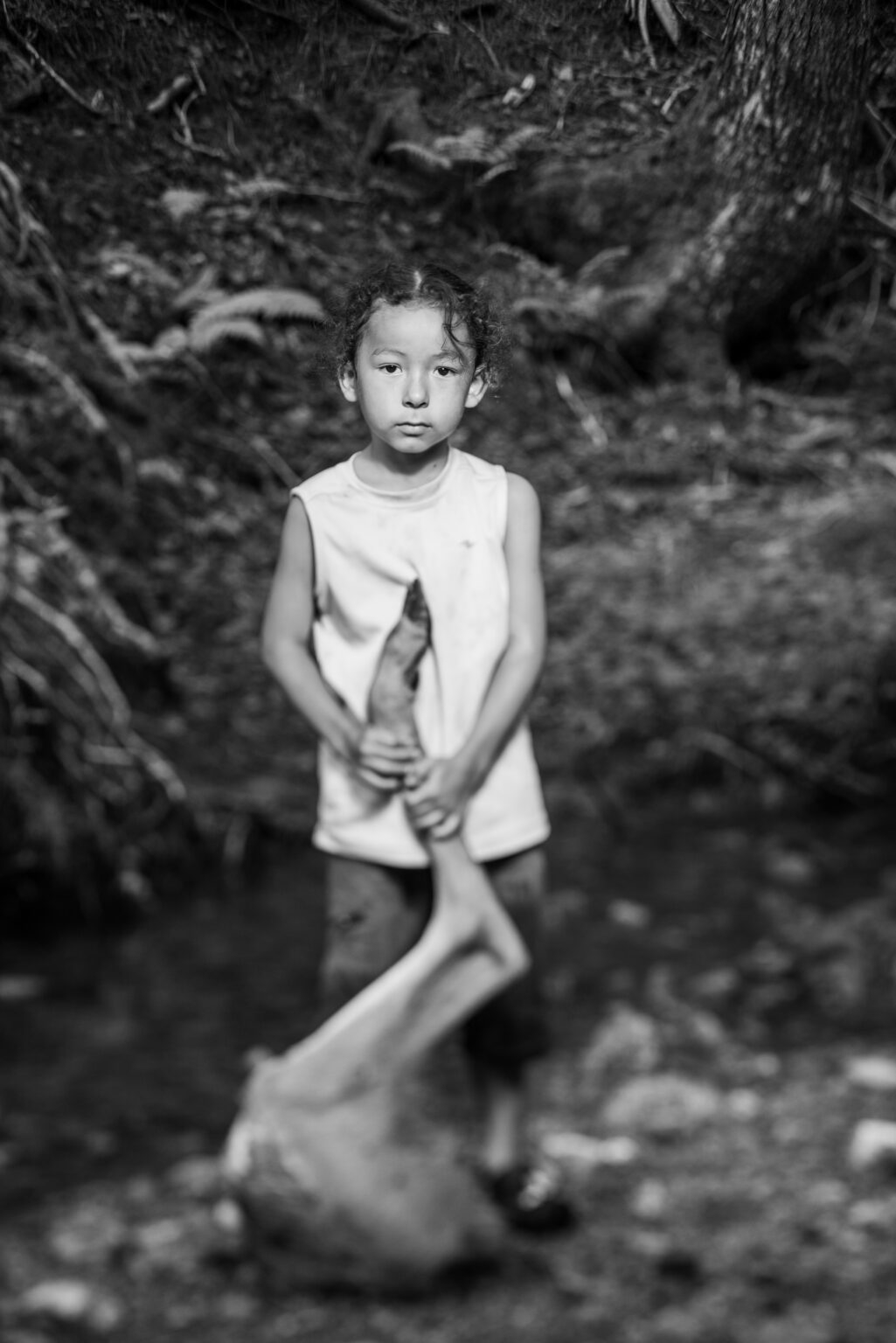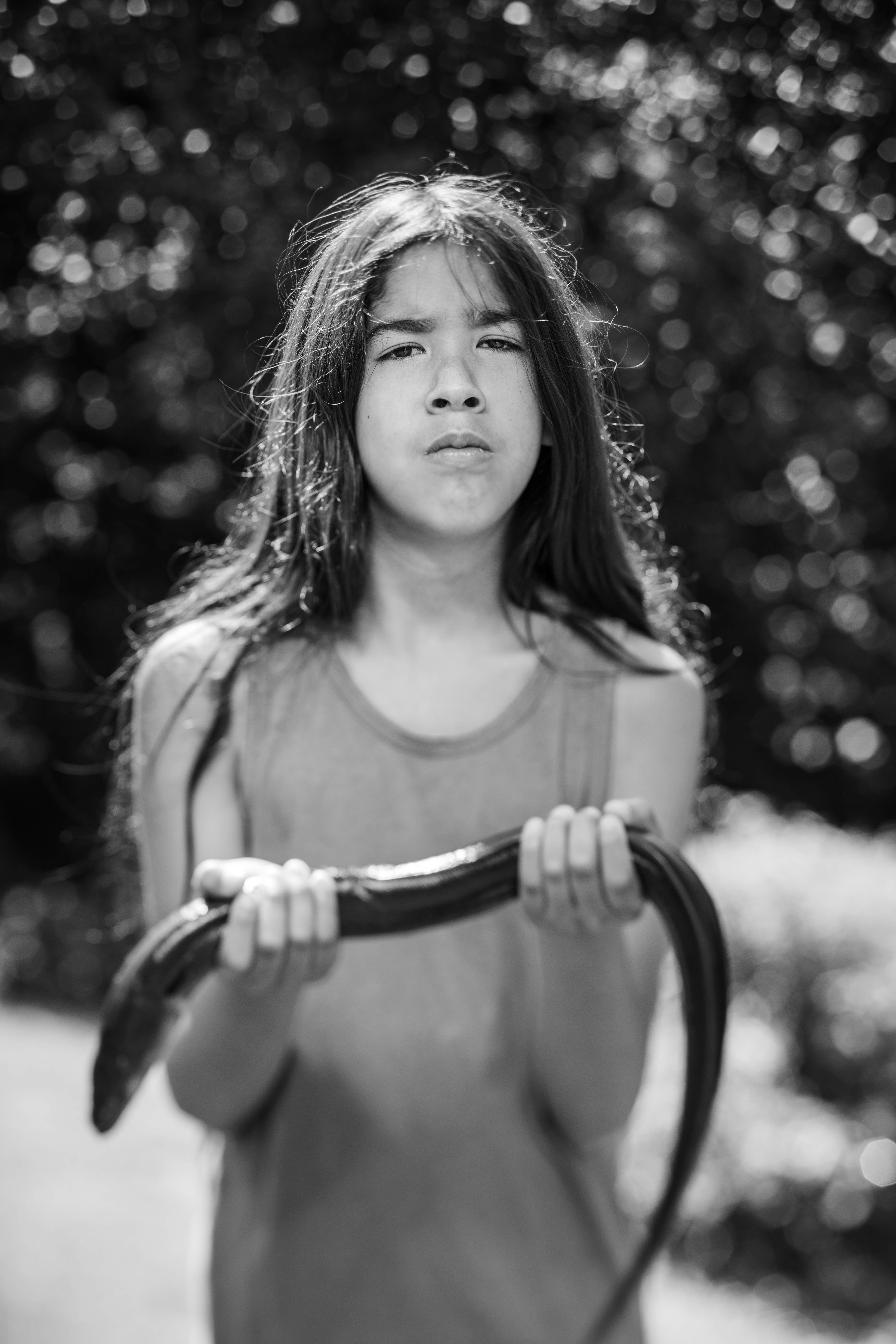Living History:
25 Years After the
Marshall Decision
Steve Wadden
He was the best fishing buddy I never had.
A father, a strong voice for the Mi’kmaq, a martyr twice in one lifetime, and a hell of a fisherman – Donald Marshall Jr. was a hero in my eyes.
Junior, as he was known, was convicted in 1996 under the federal Fisheries Act for harvesting and selling adult eels from Welnek, Pomquet Harbour, N.S. The incident, which put First Nations treaty rights centre stage, ultimately ended with Junior’s successful Supreme Court of Canada appeal and a decision 25 years ago, on Sept. 17, 1999, that upheld Indigenous rights to earn a livelihood from the harvest and sale of fish, wildlife, wild fruit, and berries as set forth in the Peace and Friendship Treaties of 1760 and 1761.
Whenever I’d run into Junior, we’d always talk about fishing. Finally, one day, I worked up the courage to ask if he’d take me out on the water and let me bring my camera along. He was all for it, and the next few times we bumped into each other it was, “we gotta get out soon” or “maybe this weekend.”
When you’re young, like I was back then, you figure you’ve got all the time in the world. But life has a way of screwing up best laid fishing plans, and our day never came. Junior passed away a few years after I met him, in 2009, at the age of 55. I still think about him often. Not about how wronged he was throughout his life – he was also at the centre of one of the most infamous wrongful convictions in Canadian history, spending 11 years behind bars for a murder he did not commit – but how special he was. His memory serves as a sure reminder to never take anything for granted, and to always honour my instincts.
Junior’s 16-year-old son Donald Marshall recently told me that he shares the same dreams as his father. Dreams of a world where Indigenous communities break free from dependency on government, where young people are given the resources and guidance to become torch bearers for their culture and architects of their own future, and where treaty rights are respected and not abused by greed.
When a friend of mine told me that 2024 marked the 25th anniversary of the Marshall Decision, I decided to pay tribute to his legacy. Photographing and chatting with proud, young Mi’kmaq harvesters, conservationists, and activists, it was plain to see that Junior’s pursuit of justice had not been in vain. The weight of the Marshall decision and of Junior’s own personal sacrifices are beyond measure.
Click here for more information on the Marshall decision.
Joef Bernard, 32, of Eskasoni with an eel he speared the night before in Potlotek, NS. Eels are revered in Mi’kmaq culture and ceremony for medicinal and healing qualities and also as an important food source that helped people through harsh winters.
Shae Denny, 28, is the aquatics research program manager with the Unama’ki Institute of Natural Resources (UINR), which represents the five Mi’kmaw communities in Cape Breton. Shae and colleagues, among other research and conservation endeavours, use an underwater remotely-operated vehicle to monitor the health of artificial reef balls UINR placed in the Bras d’Or Lake in 2021 in hopes of improving lobster habitat. UINR was founded in 1999 by Charlie Joe Dennis following the Marshall Decision to build capacity for Mi’kmaq equal participation in natural resource management in Unama’ki.
Chris Stevens, 12, of Eskasoni, with a striped bass at a kids’ fishing camp sponsored by Jordan’s Principle in Cheticamp, NS, June, 2024. Chris learned to fish from his pappa Michael Doucette and has been fishing as long as he can remember.
Budding environmental and human rights activist Donald Marshall, 16, son of the late Donald Marshall Jr., in a creek near Sydney, NS, June 2024. Donald was recently awarded a scholarship to attend the Climate Action Leadership Diploma program at Lester B. Pearson College of the Pacific and United World Colleges in Victoria, BC.
Joey Sylvester Jr., 13, of Membertou, is a grand-nephew of the late Donald Marshall Jr. and has been on moose hunts with his father Joey Sr. since the age of two. He is well-known in Cape Breton’s Indigenous community as a proficient moose caller and sportsman. This fall, Joey and his father will travel to New Brunswick, where they hope young Joey can shoot his first moose.
Meadow Christmas, 22, of Membertou with an 8lb lobster on the wharf in Port Morien, NS, July 2024. Meadow is on her second season of lobster fishing under the Membertou band’s in-shore commercial licence. Although this fishery falls outside of the Marshall Decision, Meadow and others still attribute their opportunities in the fishery to Donald Marshall Jr.’s legacy and the momentum and capacity building it fostered. A spokesperson for Membertou fisheries division says they currently employ 30 Indigenous lobster fishers.
Eliza Gould, 20, of Eskasoni, net fishes by hand for gaspereau (also known as alewife) as part of a family-run business which her grandfather, the late Walter Poulette, started over 40 years ago. Eliza says the seasonal fish are sold as bait but have also been used as sustenance food over the years and are often gifted to community members who enjoy them.
Joef Bernard, 32, of Eskasoni, with a river otter pelt. His connection to the land and traditional Mi’kmaq harvesting practices has always been a way of life. Joef spears eels by lantern at night and also hunts, fishes and traps. He processes pelts by smoking them, working them by hand and with tools fashioned from the shin bones of a moose. Joef learned how to live off the land from his late father, Blair Bernard Sr.
Blair Bernard, 6, of Eskasoni, affectionately known as Joef Ji’j after his father, with a deer leg they salvaged after witnessing a deer hit by a truck in front of them on the highway on this day in July, 2024. Blair has been surrounded by traditional teachings from birth and speaks Mi’kmaq as a first language. His spirit is a source of family and community pride, as he embodies the traditional Mi’kmaq way of life in the new generation.
Colton Marshall, 11, of Potlotek, NS, with an eel speared the night before by his stepfather Joef Bernard, of Eskasoni. Eels are revered in Mi’kmaq culture and ceremony for medicinal and healing qualities and also as an important food source that helped people through harsh winters.
